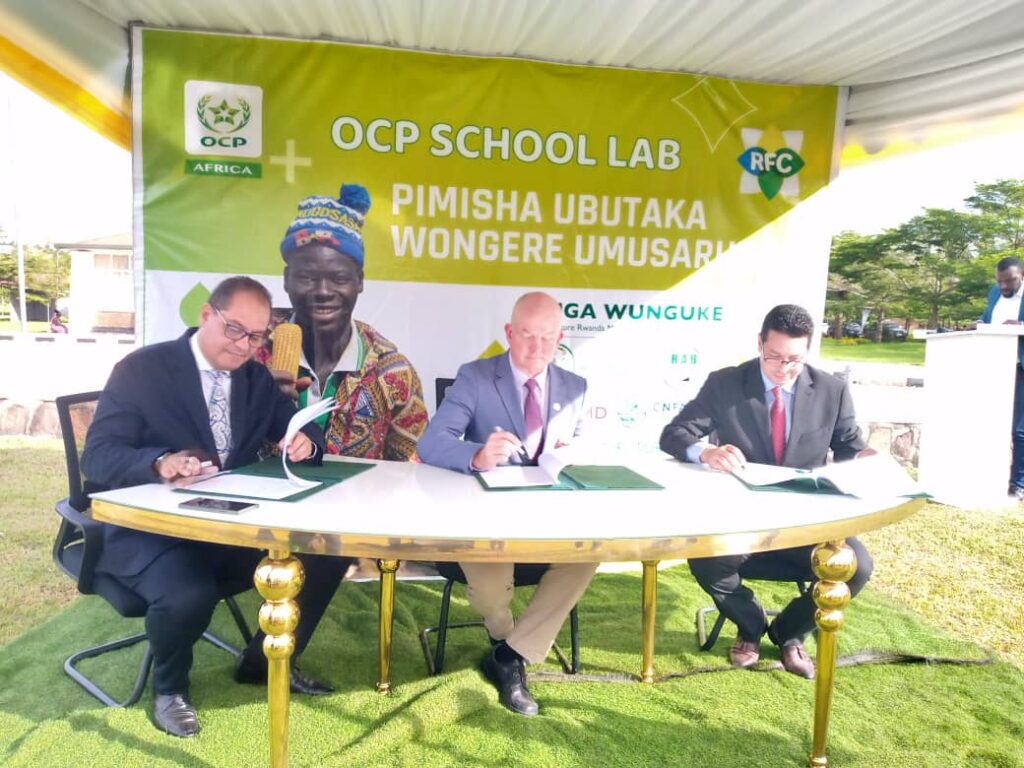New Partnership to promote agro-input use and increase farmers’ access to markets

They have signed a Memorandum to prpmote agro -input use and increase market.
Cultivating New Frontiers in Agriculture (CNFA), representing Feed the Future Rwanda Hinga Wunguke Activity, has signed a Memorandum of Understanding with OCP Africa through its JV company, Rwanda Fertilizer Company (RFC), to promote agro-input use and increase market access for over 180,000 smallholder farmers in the agricultural value chain.
Signed under the auspices of the Ministry of Agriculture and Animal Resources (MINAGRI), the partnership between OCP AFRICA, RFC and CNFA included the launch of the OCP School Lab to reach 30.000 farmers to be trained on good agricultural practices over a period of 12 months, and soil testing in 14 districts of Rwanda. The project will target Irish potato farmers in Musanze, Burera, Gicumbi, Nyabihu, Rubavu, Nyamagabe and Nyaruguru, and maize farmers in Nyagatare, Gatsibo, Kirehe, Kayonza, Bugesera, Nyanza and Gisagara.
The partnership aims to create an environment that will facilitate farmers to benefit from market systems improvements in fertilizer access in order to increase their production and to meet the demand for their products from international and local food processing companies, public actors, and traders/aggregators. Through the MoU, the farmers will benefit from improved practices and systemic approaches to agriculture that address all the challenges they face farmers and be assisted to improve innovation and entrepreneurship in the agriculture value chain.
This partnership will also benefit 150.000 additional farmers through another flagship program: Farmer House, specifically empowering young leaders in the rural area and vulnerable communities of women farmers, by facilitating access to quality agri-inputs, and small machinery, capacity building services and fostering local innovation.
“The joint effort brings solutions to challenges faced by the farmers to ensure yield and income increase,” observed the OCP Africa CEO, Dr Mohammed Anouar JAMALI.
“We are ensuring that innovative approaches benefit smallholder farmers to be able to participate in competitive markets and grow profitable,” observed Daniel Gies, the Chief of Party of the USAID-funded Hinga Wunguke activity.
As a result of these improved market dynamics, it is expected that farmers’ yields and incomes will increase while commercial value chain stakeholders will benefit from structured engagement with smallholder farmers.

